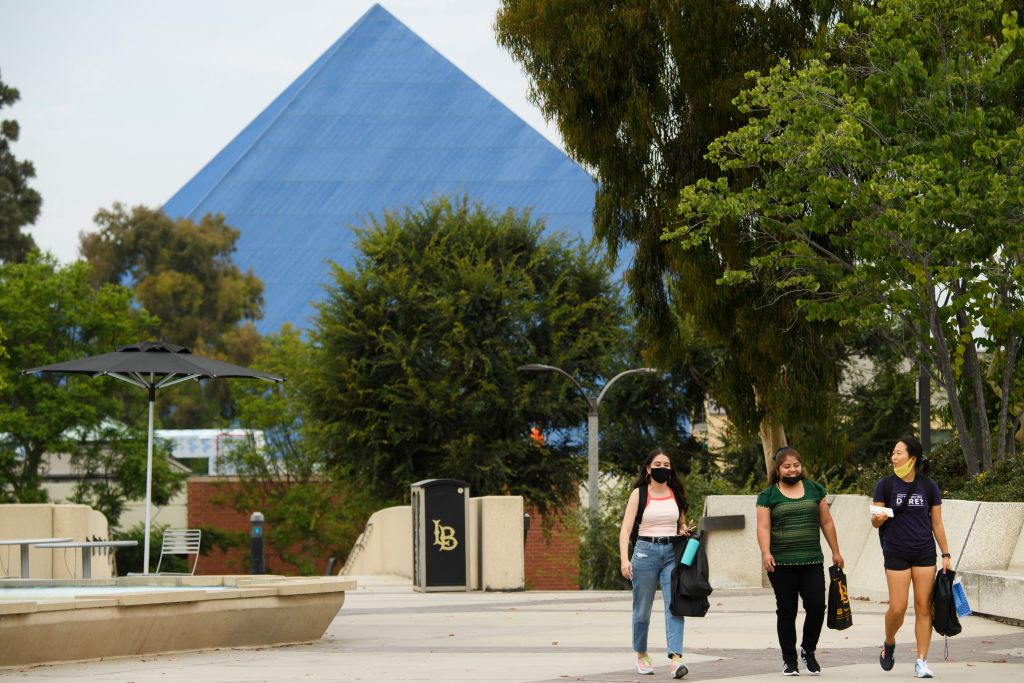- Friday, April 26, 2024

By: Shubham Ghosh
IN a move that many deem to be potentially historic, the California State University (CSU) in the United States has made caste a protected category against discrimination on its campus and it has been welcomed by members of India’s Dalit community which lies at the bottom of the country’s complex Hindu caste hierarchy.
It all started when in early 2020, Prem Pariyar, a former student of the CSU from the Dalit background, found targeted harassment by his colleagues from a dominant caste group at the institute in East Bay unbearable.
ALSO READ: US: Caste in anti-discriminatory policy irks varsity faculty
The 38-year-old told Al Jazeera that he tried to bring the university management’s attention to his plight but the latter could not do much as caste then was not a part of the university’s non-discrimination policy.
The caste system has denied India’s Dalits and less privileged castes access to education and jobs and they also faced socio-economic oppression at the hands of the privileged castes for many centuries.
To combat the challenge, India after Independence introduced “quota” in university and government jobs to facilitate the oppressed communities.
The discrimination has now reached even the American shores that are home to a large Indian diaspora.
Pariyar said it had become too difficult to survive on the CSU campus as a Dalit student.
“My South Asian colleagues tried to silence me when I talked about my experiences,” he told Al Jazeera.
But Pariyar refused to accept things silently.
In October 2020, when the US was struggling to cope with the coronavirus pandemic, he organised a virtual conference on the intersection of race, case and mental health at CSU’s East Bay’s social work department.
There, the experiences of the Dalit students came to the fore and the department subsequently added caste as a protected category against discrimination in its mission statement, the Al Jazeera report added.
Pariyar, till then, had little understanding that the debate stirred by the virtual conference would lead to a policy that would strengthen the Dalit students’ protection in the US’s largest four-year public university system that boasts of more than 485,000 students and 55,000 faculty and staff members.
On January 1, the CSU came up with a rather surprise announcement to add caste to its non-discrimination policy, banning caste-based discrimination or bias on its 23 campuses.
“This is very personal to me and a historic win for caste-oppressed people in the US,” Pariyar told Al Jazeera.
“This policy will educate people about invisible caste discrimination as well. It will help to create a welcoming environment for Dalit students across the nation,” he said.
The addition of caste protection at CSU has happened after years of campaigning by a coalition of Dalit groups in the US.
Neha, a 37-year-old Dalit from India who uses only her first name, graduated from CSU Northridge in 2014. She said she was regularly subjected to caste discrimination and insults at her place of study.
She said Indian students on the campus were “desperate” to know her caste and that one of her friends belonging to a privileged caste even stopped talking to her when she came to know about her caste. She was even excluded from group projects later.
“This was the reason why we fought to have protection for caste-oppressed students,” Neha told Al Jazeera. “It is a civil rights victory. Now no student has to face the fears that I went through.”
Sarah Taylor, professor and chair at the social work department, CSU East Bay, said the addition of caste to non-discrimination policy provides an “opportunity to engage in dialogue” and raise awareness about the “oppression that has impacted” many members belonging to the Dalit community.
“Caste discrimination is happening in our state. It has to be a part of the lens our students, staff, faculty and community draw on when they think about intersectional identities, experiences and oppressions,” she told Al Jazeera.
Thenmozhi Soundararajan, a Dalit American activist and executive director of Equality Labs civil rights body, felt the addition of caste protections at CSU systems a “watershed moment” for the community.
“It has given courage to many caste-oppressed people in the US and around the world to continue to come out, share their stories and fight for their rights, wherever they may be,” Soundarajan told Al Jazeera.
However, the US university’s move has also faced opposition.
Some faculty members of CSU and Hindu organisations in the US have slammed the addition of caste as a protected category.
Nearly 80 CSU faculty members also wrote to the CSU Board of Trustees recently, calling the move a “misguided overreach” and said it would “single out” and “target” Hindu faculty of Indian and South Asian descent.
The Hindu American Foundation (HAF), a right-wing group, also criticised the CSU system for implementing an “ethnically antagonistic policy” and said it was “arbitrary and unnecessary”.
The group also warned that it is considering legal avenues to get the decision scrapped.
However, the CSU system has stood firm and said its decision to specifically add caste in the interim policy reflects the system’s commitment to inclusivity.
![]()